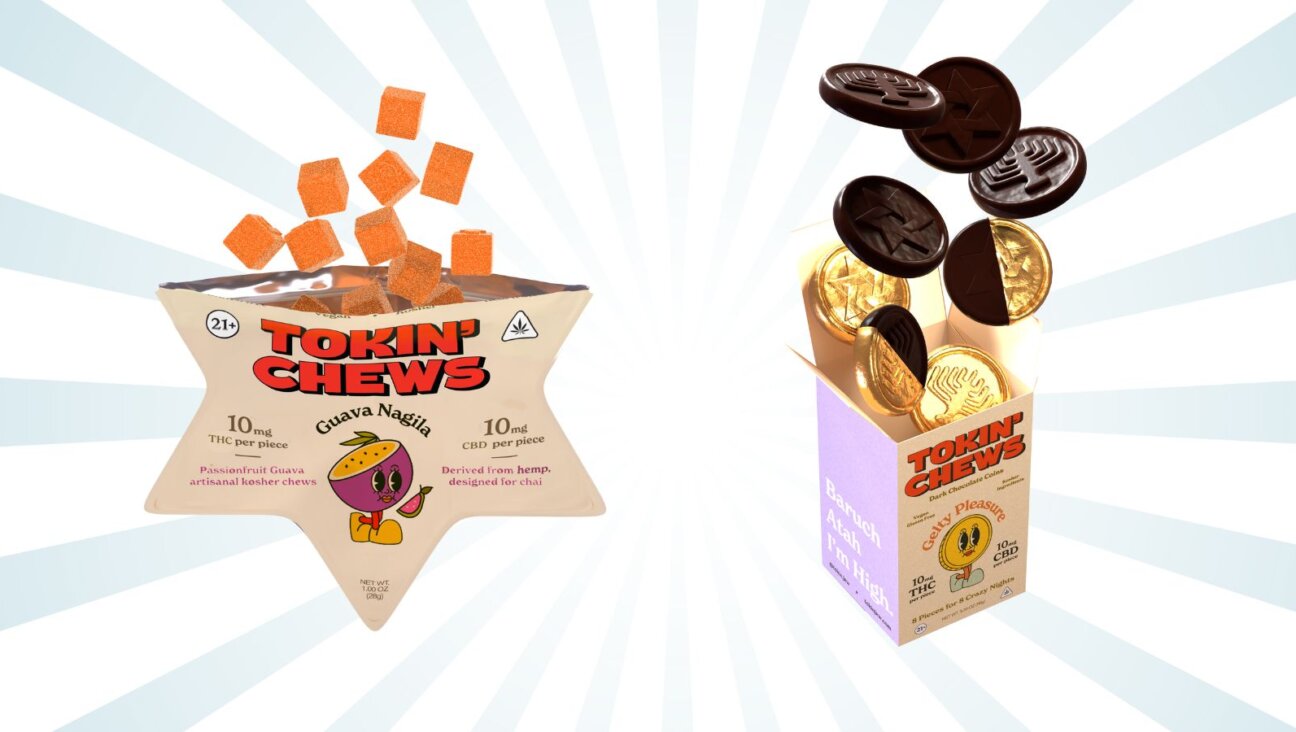How To Survive the Bacon Boom

Pardes? Bacon Burger is topped with house-cured beef bacon. Image by Courtesy of Pardes
If you ask a lifelong kosher eater what the one food is that they wish they could try, or a newly kosher eater what they miss most, the answer is almost always, resoundingly: bacon! As Lenore Skenazy argues in the Forward this week “This is a tough moment to be a Jew. Not because of the sex scandals involving members of our tribe. Not because of calls for Israel’s withdrawal from this or that strip of land…No, it’s because we are living through an unprecedented Bacon Boom.”
Luckily, there are several fake bacon options to help you survive the bacon boom (and they’re kosher, too!):
Abeles & Heymann’s Beef Fry uses a fatty cut, like belly or plate for a rich “I can’t believe it’s not bacon” flavor
Kol Foods sells grass-fed, organic lamb and beef bacon that’ll make you feel good about your fakin’ bacon
Betty Crocker makes not only cookies but Bacos bacon bits, perfect for topping a kosher chef’s salad
Morningstar Farms carries vegetarian bacon strips, so you can finally have that bacon and eggs in the morning.
J&D foods makes a slew of bacon flavored items including Bacon Salt, a bacon flavored mayo called Baconnaise, Bacon Croutons, Bacon Ranch and Bacon Pop popcorn (we’re not quite sure who would want to eat bacon popcorn, but hey, if it’s your thing — go for it!).
If it’s a bacon-topped burger you’re craving, we’ve got you covered:
Lamb bacon and veal bacon top the burger at The Kitchen Table in Mountain View, California
For a beefier bite, try Pardes restaurant’s bacon burger (topped with beef bacon) in Brooklyn
These product carry a kosher seal but rabbis have differing opinions as to whether people should eat imitation bacon, worrying about the ma’arat ayin issue (literally, “what will be seen by the eye,” meaning others will see you consume what looks like bacon).
The OU certifies the J&D Foods’ Baconnaise products, among others things. “The position of the OU is that what the halacha requires is that it clearly be marked that it’s imitation. As long as it’s marked that way, that’s all that matters,” said Rabbi Moshe Elefant, the chief operating officer or OU Kosher. But, there’s a caveat. “We don’t demand that anyone eat everything we certify. We’re just telling people that the product is kosher. There certainly is a strong argument to avoid eating this product,” he said. “Whether it’s a ma’arat ayin issue, or a slippery slope issue — maybe children aren’t sensitive to the difference between the bacon bits they have at home and others.” And, he added, “I’ve never eaten it.”
At Pardes Restaurant in Brooklyn, owner Shana Wendel, said some people get freaked out by the “bacon,” they serve, which is cured using the same method as pork bacon. “Some people can’t wrap their heads around it…Some people just steer clear of it,” she said.
But don’t worry, we won’t tell on you if you sample one these (fake) bacon treats.
A message from our Publisher & CEO Rachel Fishman Feddersen

I hope you appreciated this article. Before you go, I’d like to ask you to please support the Forward’s award-winning, nonprofit journalism so that we can be prepared for whatever news 2025 brings.
At a time when other newsrooms are closing or cutting back, the Forward has removed its paywall and invested additional resources to report on the ground from Israel and around the U.S. on the impact of the war, rising antisemitism and polarized discourse.
Readers like you make it all possible. Support our work by becoming a Forward Member and connect with our journalism and your community.
— Rachel Fishman Feddersen, Publisher and CEO





























